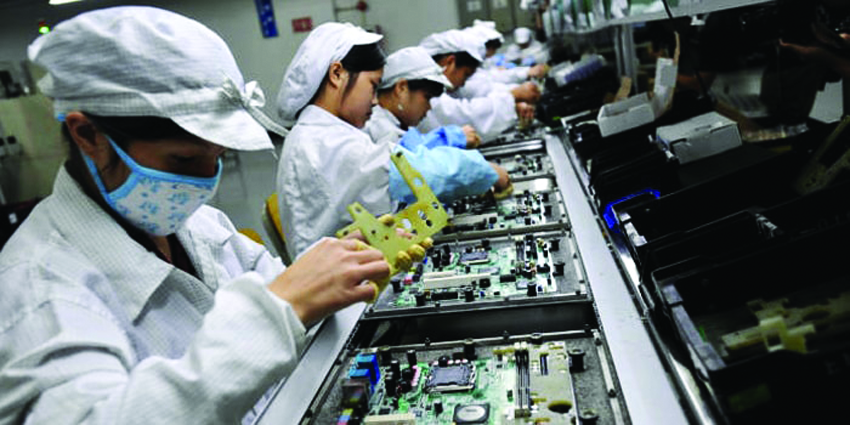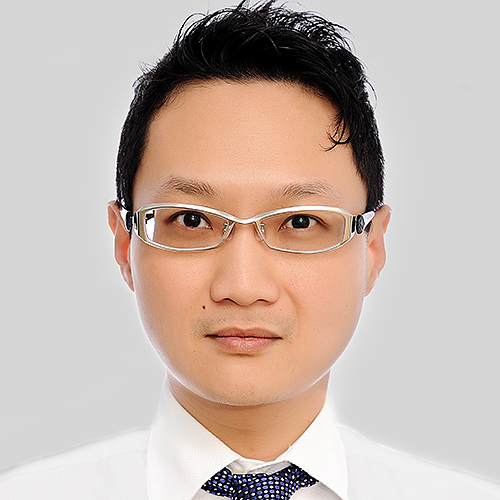 FIT Hon Teng, a Foxconn subsidiary that raised in July US$342 million from its initial public offering (IPO) in Hong Kong, is setting its sights on North America in a bid to go global.
FIT Hon Teng, a Foxconn subsidiary that raised in July US$342 million from its initial public offering (IPO) in Hong Kong, is setting its sights on North America in a bid to go global.The maker of fibre-optic transceivers and wireless charging components is the fourth-largest supplier to the global connector market. It now seeks a greater presence in the automotive and industrial industries.
FIT, a unit of Apple’s biggest supplier, Foxconn, is among a crop of Taiwanese companies that have thriving operations across the Straits, tapping the Chinese markets for manpower, revenue, and capital.
To gain an edge in an increasingly competitive global market, companies like FIT are choosing to list in China’s markets, undeterred by strained cross-strait relations.
Beyond Hong Kong’s more established exchange, China’s stock markets are luring Taiwanese companies to list in Shanghai or Shenzhen, thanks to ongoing reforms. Since June last year, at least six Taiwanese companies have completed their listing debut in the mainland, raising a total of US$412 million or double the amount raised in initial share sales in Taiwan. They note China’s easier IPO approval process among reasons for pursuing a mainland listing.
Corporates, particularly technology and smaller-sized firms, are also turning to the mainland exchanges to attain higher valuation for their initial shares. Retail investors that dominate the Shanghai and Shenzhen markets trade those shares actively, helping drive share prices higher.
The price-to-earnings (P/E) ratio of Taiwanese listed stocks stood at 16.22 in the first half of 2017. In contrast, Shenzhen board’s P/E ratio was at 35.8 in the period. The Shanghai mainboard was at 16.98.
More Taiwanese firms are expected to follow suit. Avary Holding, a unit of printed circuit board maker Zhen Ding Technology Holding, announced plans to launch its IPO in Shanghai. Suzhou Fushun New Packaging Material is also planning to list in China.
Mainland exchanges’ increasing popularity among issuers is casting a shadow over Taiwan’s efforts to lure back Taiwan corporates with strong presence in China, informally known as Taishang. Until recently, the Taishangs have dominated the city-state’s share listing for foreign-registered firms.
“Taiwanese corporates are likely to adopt a wait-and-see approach in choosing the market to list in,” says Michael Lin, who used to head the Taiwan Stock Exchange. Lin, who is now chairman of Taipei-based Fortune Securities, acknowledges that China’s stock exchanges are increasingly becoming attractive IPO destinations for some Taiwanese firms.
“One of the Big Four accounting firms already issued guidelines to help Taiwanese corporates in their China IPO applications. They’re seeing business opportunities there,” he adds.
Like FIT, fingerprint-sensor maker Goodix, in which Taiwanese IC designer MediaTek owns a 20% stake, also chose to list in China to raise capital.
Goodix went public in Shanghai in October 2016, raising 873.9 million yuan (US$127 million) to help finance acquisitions. Its shares have risen six-fold since its debut and the company is now valued above US$6 billion.
As part of an overseas expansion, Goodix is setting up a US-based marketing team that will cover markets outside of China and Taiwan. The company, which has been supplying chips to Amazon’s tablets after gaining a foothold in the mainland, is eyeing acquisition elsewhere to speed up expansion.
“Corporates have their own considerations when choosing an IPO location. P/E ratio is not the only factor. Regulators need to figure out how to make corporates stay in Taiwan,” Lin adds.
The speed at which their Chinese rivals acquire technology and raise capital in the mainland remains an issue for some Taishangs. Among the reasons they choose to go public is to improve their visibility and boost competitiveness in the markets they operate in. They don’t see gaining those advantages if they list in Taiwan alone.
L&K Engineering, a Taiwan-listed firm that set up shop in Suzhou in 2002, pursued a dual listing in 2016, launching another IPO last December, this time in Shanghai.
The company, which specializes in building “cleanrooms” for the semiconductor industries, attracted strong interest among investors. According to L&K, the online portion of its Shanghai listing attracted interest amounting 5,921 times the amount on offer.
But the bigger surprise for the construction firm is the heavy flow of business inquiries it has been getting since listing in December. Prospective clients within China’s Suzhou Industrial Park have started calling L&K, the company’s top executive says in an interview with a Taiwan-based magazine.
“Construction companies have to grow big in scale. They have to go public to be able to receive the trust of the local market, financial institutions and developers,” he says. 





.jpg)
.jpg)


